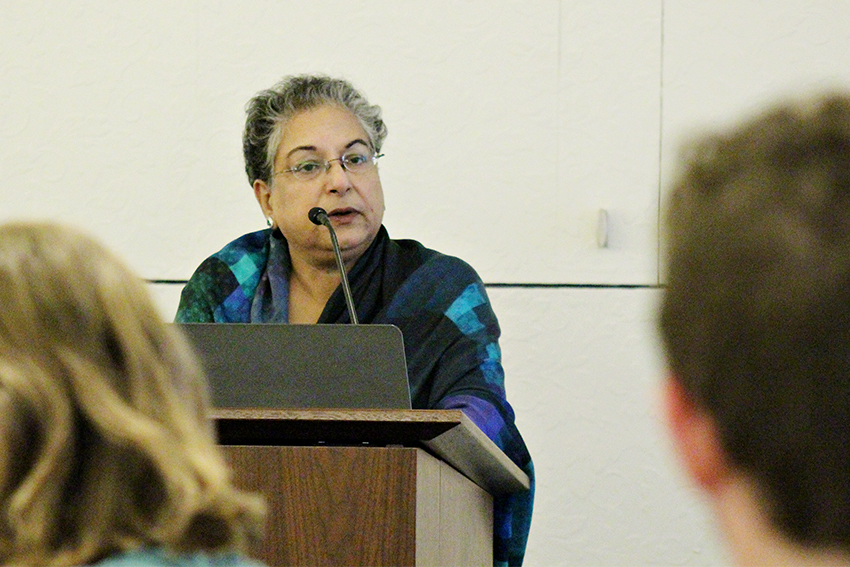While discussing tough human rights concerns, Pakistani lawyer and activist Hina Jilani is passionate and succinct.
“Always be outraged,” Jilani told the aspiring lawyers and advocates crowding the tables around her. “If we see torture, if we see discrimination, if we see violence, we need to react.”
The Rapoport Center for Human Rights and Justice in the UT law school invited Jilani to give a lecture on conflicts and crises in South Asia on Monday.
Jilani founded the first all-women’s law firm and the first legal aid center in her native Pakistan. She has been an advocate of the Supreme Court of Pakistan since 1992 and has served as the first UN special representative on human rights defenders.
Jilani said regardless of whether a nation is at war, unless individual communities are at peace, there will be enough conflict to spark violence.
“Regions which should be celebrating their plurality have made it the reason for conflict,” Jilani said.
According to Jilani, defending human rights has become increasingly dangerous over time, as activists lose access to areas of conflict and the tools they need to help communities in crisis.
Government freshman Jordan McGee said she came to listen out of curiosity. After college, she wants to help communities work their way out of poverty.
“It’s hard to learn about all that stuff without wanting to take action against it,” McGee said.
Even after 25 years and over 3,000 legal cases, Jilani still believes the international community can do more for the oppressed.
Over the years, Jilani has worked to uncover human rights violations in Sri Lanka, Darfur, Gaza and Pakistan. Jilani said she has seen repeated denial of wrongdoing by the states of these areas, which keeps conflicts from being resolved.
“Violence may end, but the reasons for it persist,” Jilani said.
Jilani said citizens must be wary of allowing military to take too much control in the face of terrorism.
“In the parts of the world where the roots of terrorism are the strongest, it was the human rights people who were in the forefront, confronting the very extremism that gave birth to terrorism,” Jilani said.
Selma Bora, an international relations and global studies senior and intern for the Rapoport Center, sees Jilani as a role model.
“We should always pay attention to human rights violations,” Bora said. “[Jilani] has been tremendously brave in a country that has not been that open for women’s rights.”
This article has been updated since its initial publication to correct the spelling of the Rapoport Center for Human Rights and Justice.





















